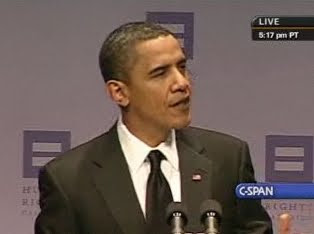The very first thing I did after signing up to move to the far west of West Virginia for six months was to log on to Mapquest. I'd be living in an entirely new and unfamiliar area of the country, and I wanted to know where my husband and I could go to eat.
The options were limited. Charlottesville, Va., Asheville, N.C., Knoxville, Tenn., all cities with reputations for good food, are more than five hours' drive away. It takes seven hours to get home to Washington and eight hours to get to Memphis. Only 21/2 hours away, though, was Columbus, Ohio, a city I'd never thought much about visiting, let alone considered a culinary destination.
Shows what I know.
The once-conservative Ohio capital has blossomed into a certified food lovers' town, with serious cocktails and microbrews, pastries worthy of Paris, fantastical ice cream flavors - think peanut with toasted coconut and chili - and extraordinary food shopping. In November, food guru Michael Ruhlman, who had dismissed Columbus as "Applebee's country" on an episode of the TV show "No Reservations," very publicly revised his judgment, calling the city a worthier food destination than his beloved home town of Cleveland.
A case in point is North Market, the city's food hub. Open year-round, the airy converted warehouse hosts 35 vendors: butchers, bakers and ice cream makers. Local food gets lots of shelf space - we found Ohio-milled grain, grass-fed beef and Lake Erie-caught walleye - but so do international delicacies such as imported cheese, wine and spices.
We stocked up on supplies (including a case of a terrific 2005 French Bordeaux priced at a glorious $11 a bottle). But we also filled our bellies in preparation for an afternoon of exploring. We shared a fragrant, yeasty cinnamon roll from Omega Artisan Baking and lingered over a case stacked high with potato-and-cream-cheese pierogis at Hubert's Polish Kitchen. But with the wind chill, it felt like 11 degrees outside, so we settled on two giant bowls of pho at Lan Viet Market.
After polishing off the aromatic Vietnamese beef noodle soup, garnished with mint, basil and bean sprout, we were warm enough to forget the blistering cold and justify dessert next door at Jeni's Splendid Ice Creams. Founder Jeni Britton Bauer is one of the city's gastronomic heroes. Her market shop, along with six others throughout the city, offers about 30 flavors, such as Bangkok peanut (the one described above), brown-butter brittle and young Gouda with vodka-plumped cranberries, which sounds awful but tastes like decadent cheesecake.
Almost all Jeni's flavors feature local ingredients. That cranberry-soaking vodka comes from Middle West Spirits, an artisanal distillery a short distance from North Market. Housed in a renovated auto garage, Middle West, with its concrete floors, white subway tiles and salvaged turn-of-the-century antiques, looks more like a SoHo loft than a Midwestern manufacturing plant. But style doesn't trump substance. Smack in the center of the space is a stunning, custom-made copper still.
According to the Food and Drug Administration, vodka must be colorless, odorless and tasteless. And while Middle West founders Brady Konya and Ryan Lang don't officially disagree - that would be illegal! - they do everything they can to make their vodka, OYO, taste distinctive. The wheat, a soft, red variety, comes from just 25 miles outside Columbus. The liquor is distilled only once, which leaves a velvety feel in the mouth and a hint of sweetness on the finish. This is vodka for sipping neat.
OYO is available by the glass at Mouton, a spare-but-elegant cafe and cocktail bar a few blocks away. But the draw there is the classic cocktail list, which limits itself to excellent renditions of Prohibition-era classics: aviations and negronis, Manhattans and Mary Pickfords. (This is a stark contrast to many of the slick bars along the trendy Short North strip that seem to trade exclusively in cloying mocha martinis and cosmos.) The drinks are excellent: strong, smooth and never sweet. Still, after one, we switched to wine, all the better to go with Mouton's carefully curated list of American cheese and charcuterie, such as a salami, scented with black truffles, from Utah.
Brunch is a meal I generally find disappointing: a blur of stodgy pancakes and rubbery eggs that not even hot sauce can save. (A "punishment block for the B-team cooks, or where the farm team of recent dishwashers learn their chops," is how Anthony Bourdain described it in his memoir, "Kitchen Confidential.") But all is redeemed at Skillet, a cozy 32-seat bistro in Columbus's historic German Village. The pancakes are fluffy and filled with shredded apples and farmer cheese. The omelets are stuffed with organic potatoes and house-cured sauerkraut spiced with pear and caraway, a nod to the neighborhood's heritage. And, just to make the already tough decision about whether to go sweet or savory even harder, chef Kevin Caskey offers dishes such as breakfast risotto: Arborio rice cooked in milk, then dotted with velvety bits of caramelized apples and salty bacon and finished with a scoop of mascarpone. Only a truly skilled cook could make something so indulgent taste light.
We had planned to walk off our meal as we toured German Village. But blustery winds and snow forced us to tour the narrow streets in our car. The tidy brick cottages and ornate Queen Anne Victorians are some of the city's most desirable homes. But that wasn't always the case. Settled in the early 19th century, the neighborhood grew quickly as waves of German immigrants arrived in Ohio. But the world wars stirred up anti-German sentiment and the area fell out of favor. By 1950, the neighborhood was considered a slum.
Over the past 20 years, young professionals and empty-nesters have resettled the neighborhood, which in addition to offering historic housing stock is a short commute to downtown. Stylish boutiques and restaurants soon arrived to serve them.
Pistacia Vera is testament to the changing neighborhood. For decades, the building it's in housed two no-frills family bakeries. But in 2004, siblings Spencer Budros and Anne Fletcher renovated the space into a chic patisserie with exposed brick walls, marble-top tables and bentwood chairs.
It would have been easy to sell muffins and ubiquitous cupcakes, Fletcher told us. But the pair was determined to restrict the menu to classic French pastries - croissants, brioches, palmiers and an excellent fig-cardamom braid - and elaborate desserts and truffles. Their most popular item? Technicolor macarons that come in seasonal flavors such as yuzu, caramel pecan and maple walnut.
A dozen made the perfect snack for the car ride home.
Black is a former staff writer for The Washington Post Food section.






